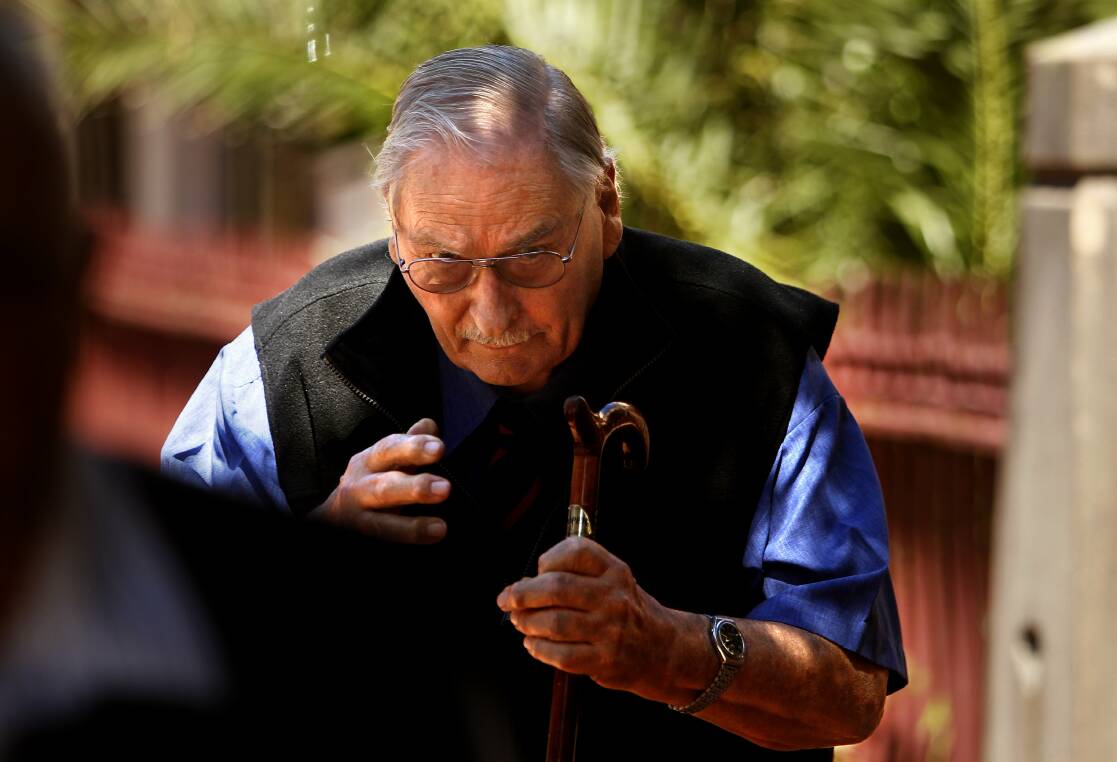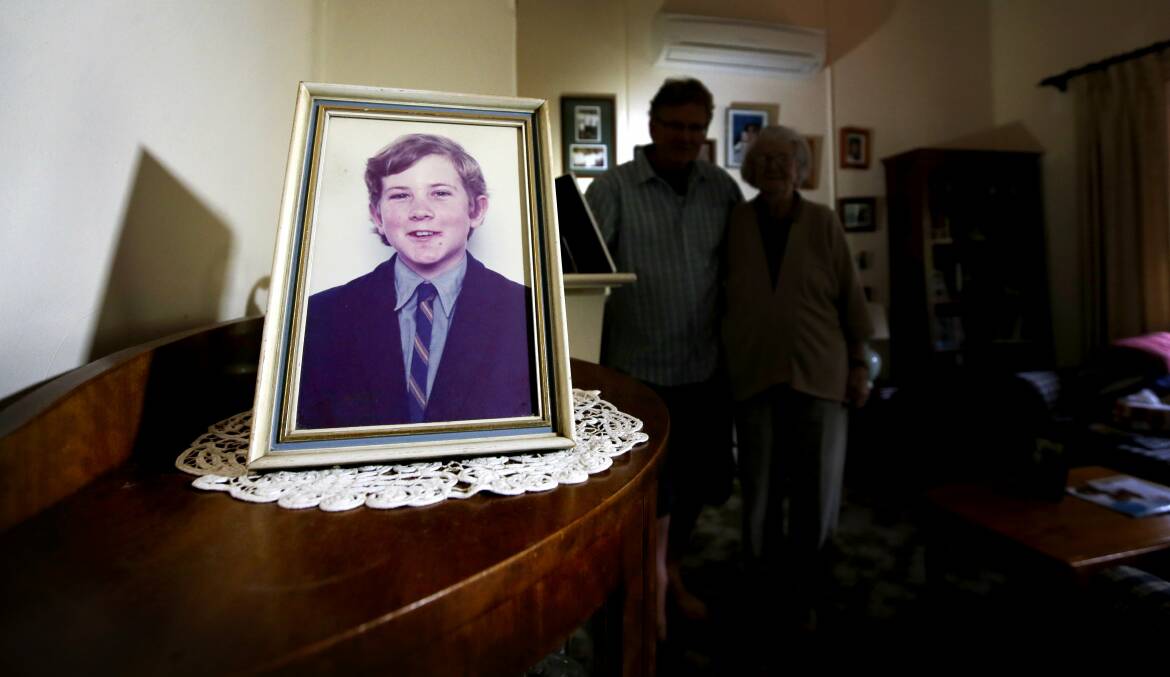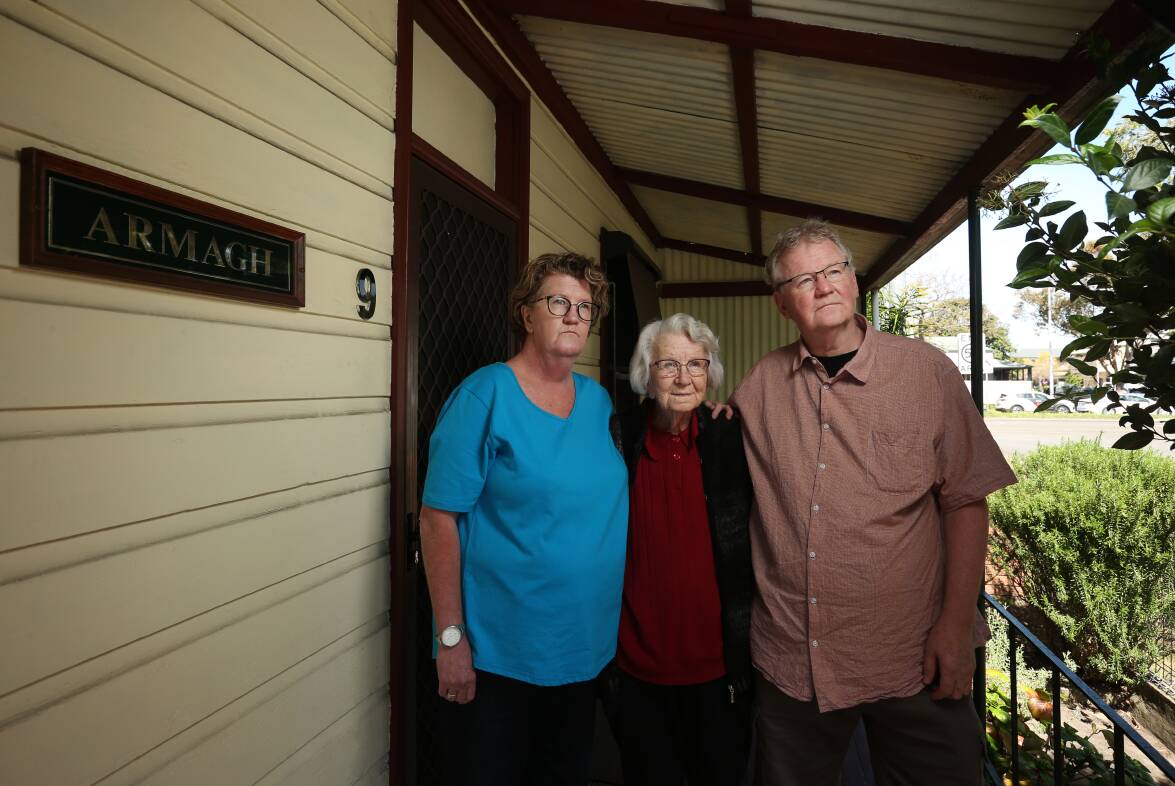
THE Supreme Court has denied a Marist Brother's request for a permanent stay against proceedings involving notorious Hunter paedophile, Francis William Cable.
"Just as well", say survivors and advocates, including Geoffrey Nash, whose brother, Andrew Nash, one of Cable's many victims, took his own life in 1974.
"Anything else goes against the core values of Australian society," Mr Nash said.
The Marist Brothers tried to have the civil case of Mark Peters (a pseudonym) dismissed after Cable, aka Brother Romuald, died in prison in September last year (2022), claiming they could not get a fair trial because the paedophile could not give evidence.
In a judgement handed down on Friday, NSW Supreme Court Justice Nicholas Chen rejected their permanent stay application, saying they had plenty of time to get a statement from Cable before his death but failed to do so.
"(Marist Brothers) should not, in my view, have the benefit of its own inaction," the judge said.

Cable was serving a 16-year jail sentence for sexually abusing more than 25 children, many of them from the Hunter, with further charges pending at the time of his death.
Mr Peters says he was sexually abused by Cable at a Marist Brothers school more than 50 years ago, and is seeking damages for psychiatric injuries.
In his statement of claim, Mr Peters says Cable had committed scores of child sex offences against school students, starting no later than 1960, and that an investigation carried out by Brother Kevin in 1967 uncovered that fact, but no written records of allegations or admissions of sexual abuse were kept before 1983.
The Marist Brothers failed to depose Cable of holy orders at that time, failed to contact police, failed to supervise Cable, and continued to give him access to young boys knowing he was a compulsive paedophile, the claim says.
In their defence, the Marist Brothers said they did not receive complaints about Cable until after 1971, and they do not admit that he had committed "scores" of child sex offences.
Justice Chen rejected the Marist Brothers' claim the case should be thrown out because there were no longer any documents or witnesses relating to the alleged abuse because of the passage of time, finding that evidence would not have existed anyway.
Cable has never given any evidence about his crimes and, despite being put on notice in 2020, the Marist Brothers made no attempt to put Mr Peter's allegations to him, and had in fact not approached him since 2015, when he wrote a letter saying he would not meet with anyone from the Marist Brothers leadership team.
In terms of witnesses, the abuse was allegedly conducted "surreptitiously" including when the schoolboy victim was on detention at the back of a largely empty classroom.
Other disputes, such as where Cable taught at the time or whether Marist Brothers had knowledge of his conduct, could be dealt with at a hearing and were not enough to stop the lawsuit, Justice Chen said.
A separate civil case brought by the man against the State of NSW over allegations of child abuse was also not enough for the court to toss the case against Marist Brothers.
The Royal Commission into Institutional Responses to Child Sexual Abuse found the Marist Brothers did nothing to stop Cable abusing Catholic school children, saying in a report that "complaints of this nature ought to have been recorded, should have led to appropriate action being taken within the school and should have been reported."
Robert McKessar, a senior partner at Braye Cragg Solicitors, said as a plaintiffs lawyer, he agreed with Justice Chen's reasoning in Mr Peters' matter.
"It is clear that each time the church, or other defendant institutions, seeks a permanent stay, the matter will be dealt with on its own facts and merits, but a common theme is that the church cannot rely on its own inaction to support a claim that they can't get a fair hearing," Mr McKessar said.
"It's also the case that the Royal Commission has generated a very significant body of material that should be able to be relied upon by plaintiffs in proving factual matters. It creates an injustice, that institutions often still require individuals to formally prove matters which have been extensively canvassed in the Royal Commission hearings.
"The permanent stay cases are the subject of various appeals currently before the courts and it is hoped that they will create some general, favourable principles which should apply to all historical abuse matters."
Newcastle solicitor Jodie Scanlon, of Kelso Lawyers, described Justice Chen's decision as a significant step back towards a just and reasonable legal playing field for survivors of child sexual abuse.
"We urge defendants, including and not limited to the Marist Brothers, to reflect on the decision, and what the 'administration of justice' means to the average Australian, which is surely not to deny survivors of abuse a fair hearing of their claim," Ms Scanlon said.
The past 10 months had been very difficult for survivors, especially those with claims afoot and those yet to come forward, she said.

Mr Nash said he knew of at least one man who had taken his life last year due to the years of suffering he had endured as a result of being sexually abused by a Marist Brother.
"There's a lot of men and families that have lost their lives because of this treatment, it's not a course of action without consequences, without repercussions, Mr Nash said of the Marist Brothers response to victims and their families.
"People take their own lives, that's the outcome of the abuse of what were once little Catholic school boys. These people all had names, they all had a future, they all had a life."
The way the Marist Brothers have attempted to distance themselves from what happens in the justice system, saying they are only following legal advice, was pathetic, Mr Nash said.
"They are trying to use legal technicalities to shirk their responsibilities," he said.
"The Marist Brothers instruct their legal team, Brother Peter Carroll and the provincial council, they run the Marist Brothers, and if they wanted to look after people, which is what they promised me, to my face, that they would do, and what they promised Audrey and the Australian Public at the Royal Commission, they could make this guy a decent offer. Then it wouldn't even come to court.
"If they take it to court, and choose to fight it, after low-balling people, that is their decision. You could also choose to come to a settlement very quickly. That is a legal option that is open to them."
Audrey Nash, 97, said it seemed as if nothing has changed.
"Bishop Carroll said to us all that they would look after the victims and their families, but nothing's happened. Everyone said that, all the bishops, but no one ever saw anyone around here.
"It's like the three brothers that were here the night Andrew died. When they found out he didn't leave a note, they left quite happy and we never saw one of them again, until the Royal Commission about 20 years later."
Bernadette Nash said it was disgusting that the Marist Brothers were still refusing to do the right thing.
"They just don't want to look after the survivors," she said. "My brother died because of Romuald and the fact they are using his death to get out of taking responsibility is just appalling."
Marist Brothers was ordered to pay Mr Peter's legal costs.
The Marist Brothers have denied strategically seeking permanent stays. Each case was reviewed "cautiously, and on its merits". The order was "guided by legal precedents and considerations as to how a litigated claim might be determined by the Courts".
To see more stories and read today's paper download the Newcastle Herald news app here.







